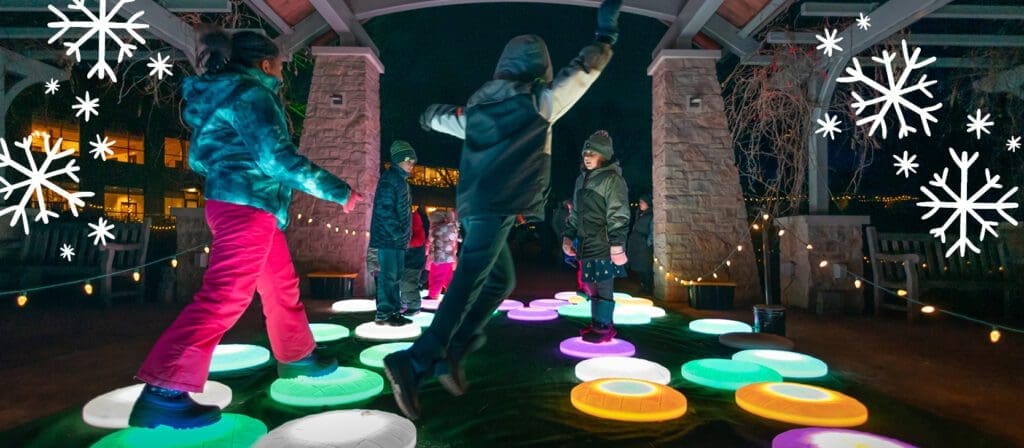The sculptures of the Washed Ashore: Art to Save the Sea exhibit are on their way back to Oregon this week. After experiencing these beautiful yet eye-opening sculptures in person this summer, many visitors to the Garden walked away pondering how they could make a difference in their local environment. One way to help improve the quality of our waterways is to recycle!
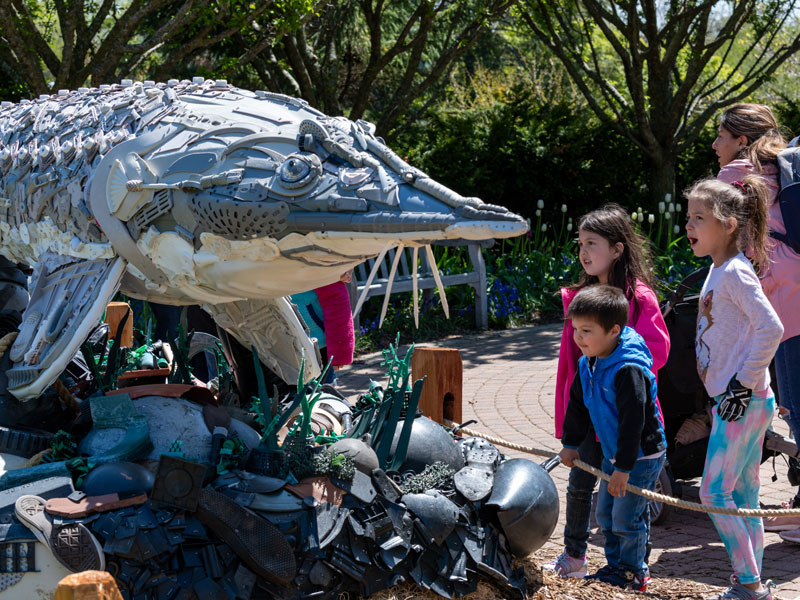
Recycling is one of the easiest ways you can show you care for the environment, but it’s important you know how to do it correctly. Improperly recycling can cause complications in the recycling facilities and refusing to recycle adds to the waste in our landfills… or ends up in lakes, rivers, and oceans, and then washed ashore!
Since recycling is free and available to all of us, let’s understand how to do it right. Check out these recycling do’s and don’ts for items you encounter most often!
PLASTIC BAGS
Not everything made of plastic is recyclable. Plastic bags are one of those things.
Plastic bags, wrap, and film get caught in processing equipment at recycling facilities, resulting in lost time and expensive repairs.
Good news is you can recycle plastic bags at most grocery stores. Collect your dry and clean plastic bags and bring them the next time you’re at the store!
If you use plastic garbage bags to collect your recyclables, make sure you empty recyclables from your bag into the recycling bin. Don’t put the bag in with it. You can toss the bag in the garbage, or even better, reuse it!
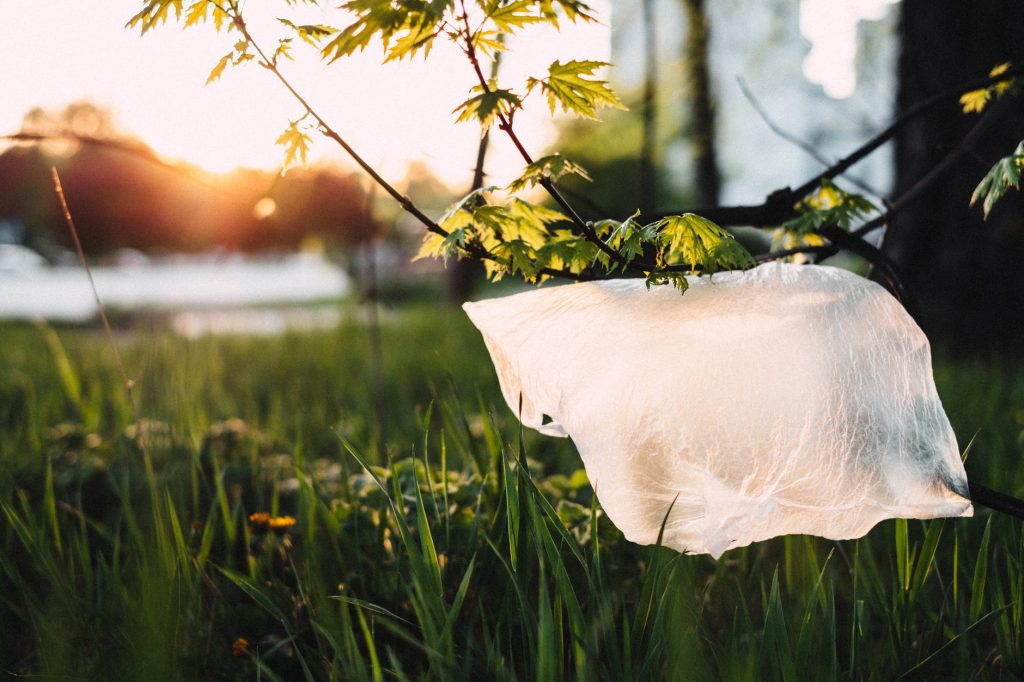
PAPER
Paper is one of the easiest materials to recycle. Newspapers, magazines, mail, food boxes, soda boxes, milk, juice, and soup cartons, office paper, and books are recyclable.
Paper you can’t recycle includes: shredded paper, tissue paper, wax paper, laminated paper, toilet paper, gift wrapping paper (unless it’s labeled recyclable), pet food bags, and paper towel.
Paper or plastic? That phrase may sound familiar. When given the option, choose paper.
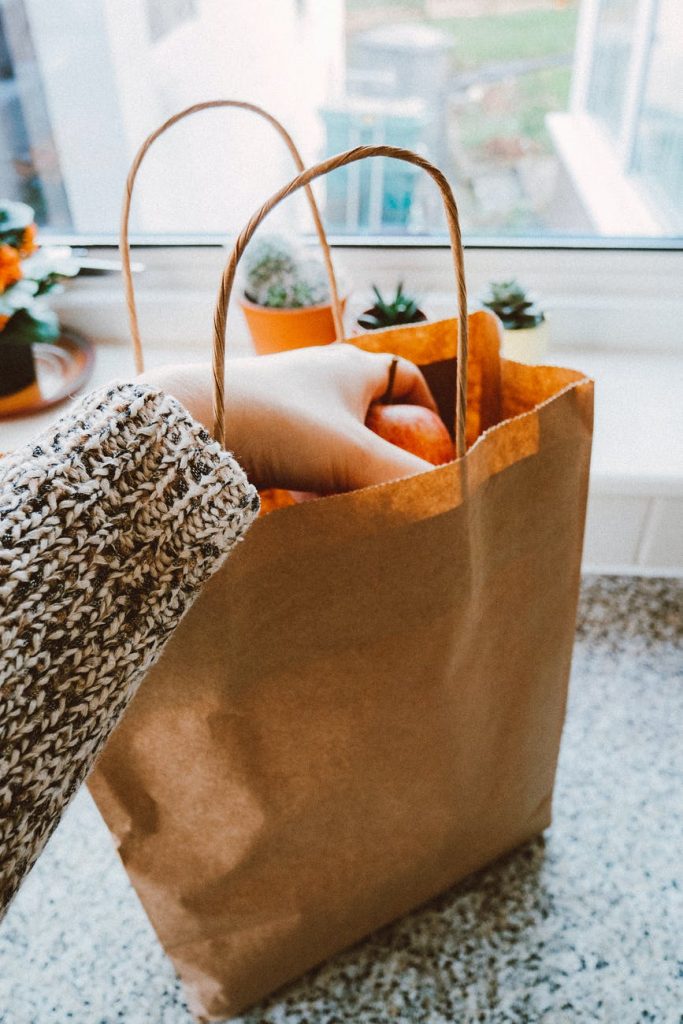
GLASS
Don’t pass on recycling glass. Glass items such as bottles and jars are recyclable and can go directly into your recycling bin. Make sure these items are emptied and rinsed. Don’t forget to remove metal lids and recycle those separately.
Not all types of glass can be recycled, however. Window glass, ceramics/china, and drinking glass should go in your garbage bin. Be more sustainable by selling or donating these items (if in good condition) so they can be reused by someone else!
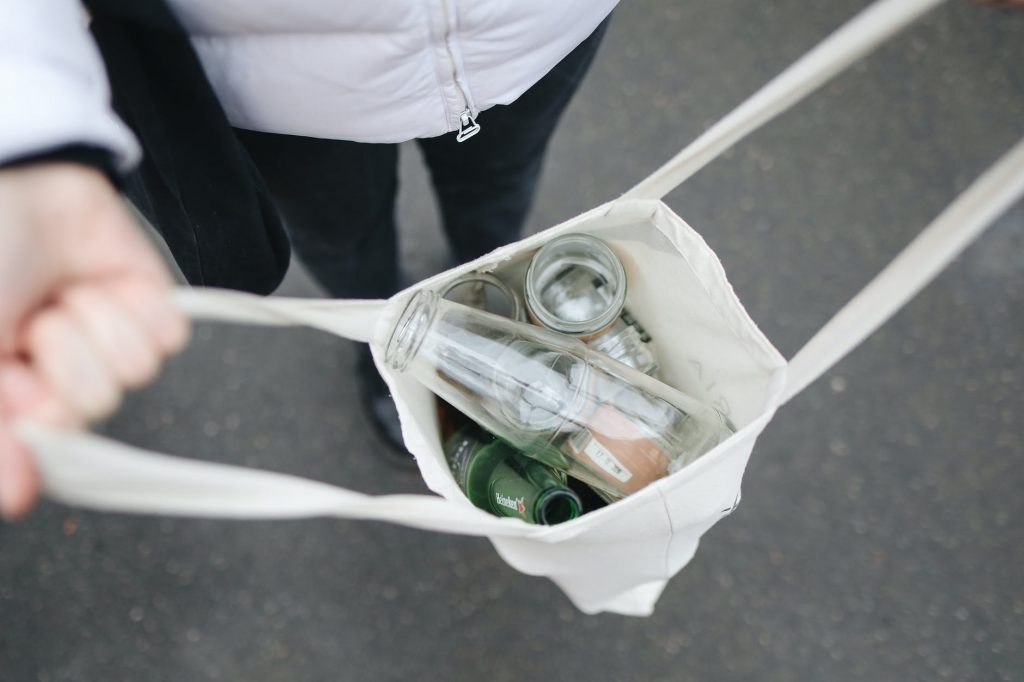
ELECTRONICS
You can recycle cellphones, printers, video games, and batteries but they don’t belong in your recycling bin.
If you’re getting rid of old electronics, consider donating them if they are still in good, working condition. You can also search for a local business or electronic recycling program. They usually accept electronics free of charge!
WHEN IN DOUBT, LOOK IT UP
When in doubt, do some research before you toss it. Take a moment to look up whether a certain item is recyclable. It might seem slightly bothersome at first, but then you’ll know for next time!
Let Waste Wizard from Tri County Resource Recovery be your guide. Look up a specific item and get your answer on how to recycle or dispose of it.
If you’re unable to do a little research, err on the side of caution and always throw it out.
RECYCLING IS OUR PRIORITY
Here at the Garden, recycling is a priority. That’s why you see clearly marked recycling bins next to all of the trash cans in our buildings. Those recycling bins are only effective if items entering them are actually recyclable.
Since aluminum is easier to recycle than plastic, we’ve switched to offering aluminum bottles of water from Open Water during our events! Our Horticulture Team also makes sure to reuse many of the plastic trays and containers for seed starting in spring.
Help us by making recycling your priority too.
For more recycling how-to’s, visit Recycling Across America, Tri Country Recycling, and Brown County Resource Recovery.



